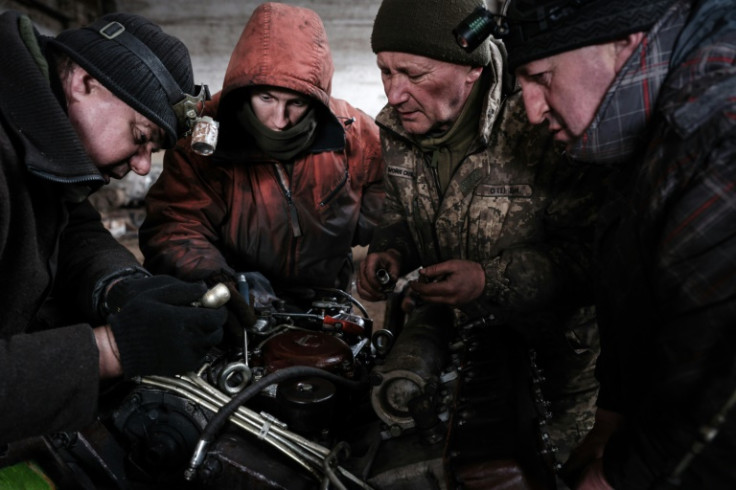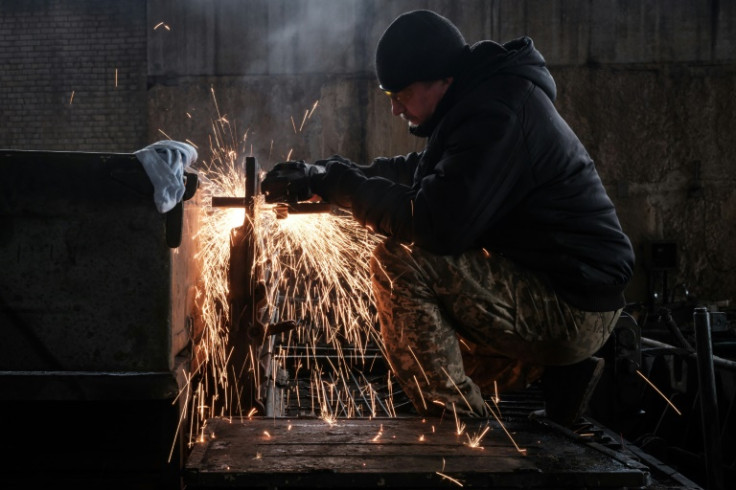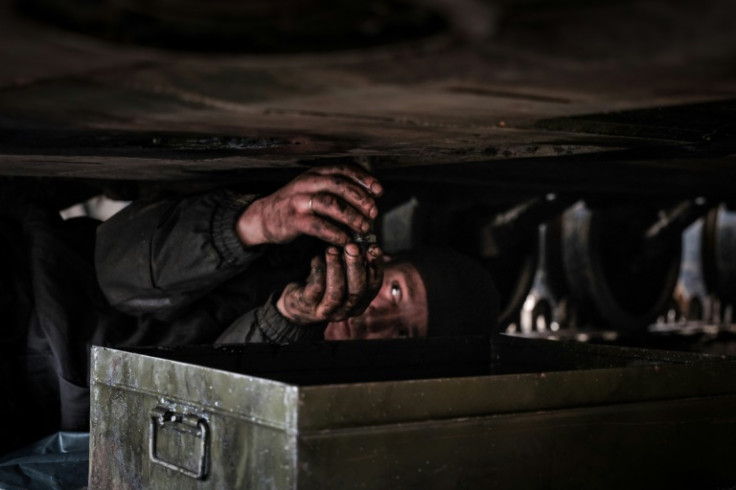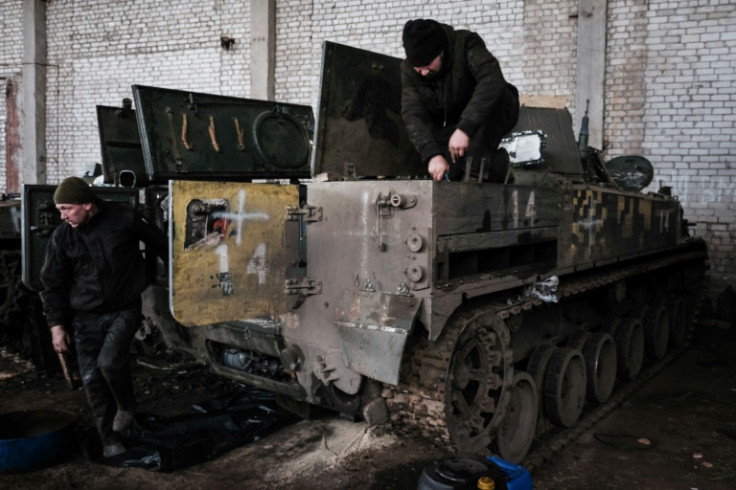Ukraine Military Repair Shop Fixes Up Old Russian Hardware

In civilian life, Dmytro was a bicycle repair man in western Ukraine. Now he fixes tanks and other armoured vehicles, making them fit for the battlefield.
"The way both work is basically the same," he insists at a secret military repair yard behind the eastern frontline.
"But of course there are differences."
Dmytro, 45, and his younger brother, Roman, 34, both work as mechanics in the 14th Mechanised Brigade of the Ukrainian Army.
Their expertise is called in for the bigger problems that can't be dealt with immediately by soldiers on the ground.
At the yard, mechanics are working on a BMP-3 infantry combat vehicle seized from the Russians during last year's Ukrainian counter-offensive in the Kharkiv region.
"The Ukrainian Army doesn't have one," says Ruslan, 47, who has been a soldier for 30 years and is in charge of the repair shop soldiers.
"To fix it we've had to take apart another vehicle for its parts," he adds over the sound of metal bashing.
In a corner, a BMP-1 -- used by both sides in the conflict -- is gradually being cannibalised in a flash of grinding sparks.
Elsewhere four mechanics with head torches pore over the pistons, pipes and wires of a giant extracted engine, like transplant surgeons in an operating theatre.
Others grease and oil parts or disappear inside the heavy armour of the fighting vehicles, brandishing giant spanners and ratchets purposefully.
"Fixing one can take from one day to one month," says Ruslan, unperturbed at the prospect of getting the Russian BMP-3 up and running without an instruction manual.
"Everything is on the internet," he shrugs, as if it was as simple as downloading a "how to" guide to put up a flatpack bookshelf or kitchen cabinet.
"It's all about the parts really."
In the yard, abandoned Russian towed artillery guns and even a giant T-80 tank wait to be seen, their letter "Z" markings still clearly visible.
The T-80, with the Donbas mud caked and dried on its heavy caterpillar tracks, will be transported elsewhere in Ukraine for engineers to look at its electronics.
But most of the appropriated Russian equipment doesn't need much work, says Ruslan.
"This isn't really badly damaged," he says of the 19-tonne BMP-3.
"The Russians don't care about their own armoured vehicles. Sometimes you can fix it. Maybe they left it because they don't know how to?" he suggests.
Since the start of the war on February 24 last year, the commander estimates that they have dealt with up to 100 abandoned and appropriated Russian armoured vehicles at the workshop.
Once they have been fixed and repainted with the white cross of the Ukrainian Army or its trident emblem, they can be redeployed -- but against the Russians.
New Western equipment that Ukraine hopes can turn the conflict decisively in its favour is expected to arrive in the coming weeks.
It includes 31 US Abrams battle tanks, 14 Challenger 2s from the UK and the same number of Leopard 2s from Germany.
Ruslan refuses to say whether they'll be providing any mechanical back-up for the new arrivals but insists they have the expertise if needed.
"We already have staff who are trained to repair and understand tanks," he says.



© Copyright AFP 2025. All rights reserved.





















